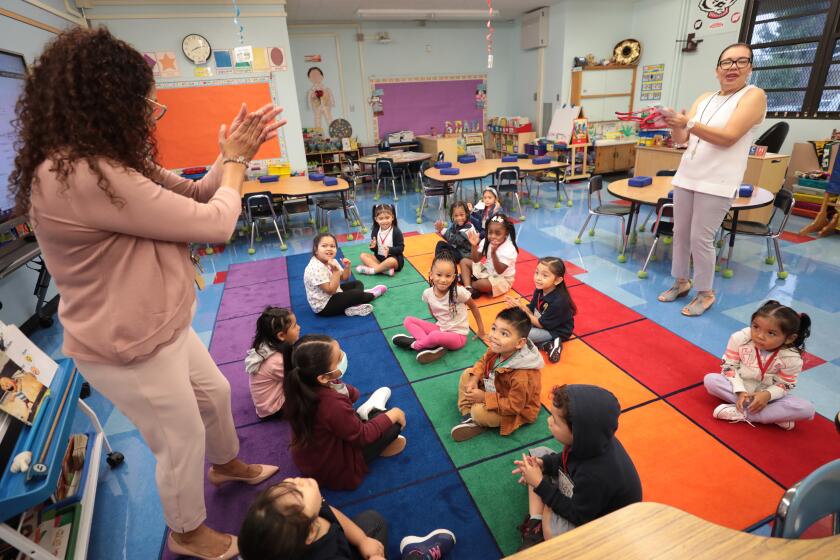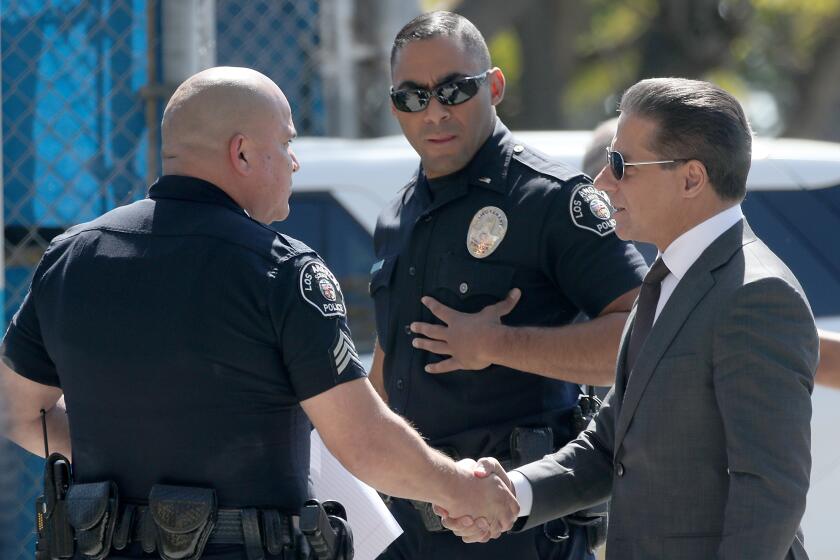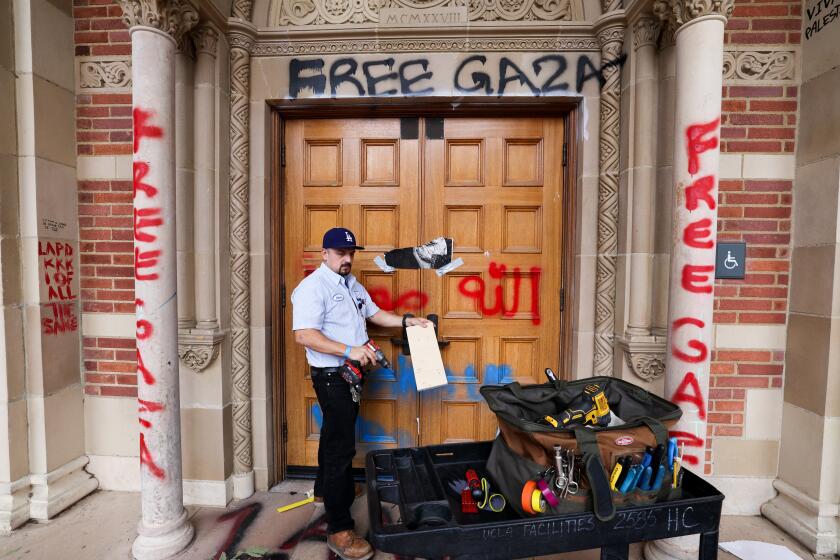Take the Chance and Talk About Race
College is a wonderful place. Ideas germinate into theory and from there into practice. Critical thinking is prized. Minds are opened, consciousness expanded.
Answers come in all shades.
Which can be pretty threatening to those not privy to such enlightenment, as recent history clearly shows.
Dictators of all political stripes have a tradition of closing down universities once the ponderings of the educated cross the line to impertinence, while here at home, the put-down is less extreme.
We talk of “ivory towers,” of eggheads being out of touch with everybody else. There are constant battles for funds. Everybody wants to see “tangible” results--read that the shortest distance between two ideas being a connection to the real world.
The latest buzz among the intelligentsia is P.C., which stands for Politically Correct.
The P.C. mongers are said to stalk the hallowed halls of higher education, taking no prisoners, annihilating free speech and the uninhibited exchange of ideas. They are said to be lefties who are just as bad, if not worse, than any intellectual tyrant of the right.
This is said to be bad for education and for the world at large.
As usual, there is a kernel of truth hiding out amid all the hot air.
I was at UC Irvine the other day figuring that Political Correctness would stand a good chance of sniffing me out and slapping me in the face.
I wanted to talk about race, and prejudice, but without the muted euphemisms of the P.C. or the epithets and slogans of small minds. I was hoping for an honest exchange of ideas about a topic as loaded as any minefield between Iraq and Kuwait.
UC Irvine, like many college campuses nationwide, has been twitching a little with flare-ups over race. Flare-ups become more extreme, on campus or out on the streets, unless people try to understand how sparks ignite.
Last November at a university conference called Students of Color, attended by representatives from all nine UC campuses, blacks accused Asians of “selling out” because they didn’t show enough enthusiasm for promoting better understanding of minority concerns. The feeling seemed to be that because Asians, as a group, are doing well, they didn’t care about those left behind.
Things got more heated from there.
Latinos were annoyed when black students were noticeably absent during a speech by state Sen. Art Torres. Asians thought some of the questions posed to March Fong Eu, the California secretary of state, showed a lack of respect.
“It was almost a clash of cultures,” says Corina Espinosa, the director of the university’s cross-cultural center.
So the cross-cultural center’s leadership fellows program was started, at the students’ request, as of the beginning of this year. The idea is to talk, to listen, to try and understand. Even when it hurts.
“It’s very tricky,” says Thomas Hei, of the Asian/Pacific Student Assn. “This is the first time we’ve ever formed a coalition like this.”
The 11 fellows, student leaders representing four of the university’s ethnic umbrella groups, meet once a week. Four times a year, they attend retreats. The talk is always frank, regardless of what is or is not Politically Correct.
I sat in on a session and asked some questions of my own, mostly about race.
The “melting pot” theory hasn’t been seriously mentioned around here for years; the theory has never been more than that. Now the word is diversity , but many think that’s a smoke screen too.
People are still sticking with their own kind, where it’s safe. They are either lazy or they are scared. Sometimes it’s both.
“The university is constantly talking multiethnic, diversity-- these are the buzzwords today,” says Cheryl Buggage, of the African-American Student Union. “Then they have Asian week, African-American week. . . . They have these pigeonholes that they stick us in, on the edge. . . . Is that diversity when other people come and watch ?”
Institutional racism--built-in prejudice as “natural” as doors that open to the right--is what the students say is to blame.
“It has to do with being threatened,” says Kieya Griffith, also of the AASU. “When we had a rally a while back, you had all these European males, standing on the fringes, looking, like, ‘What is this ethnic (stuff)?’ I think they are afraid of annihilation.”
“It goes to the heart of what kind of education you get here,” adds Cheryl. “They have a racist education. . . . Eurocentric, white male.”
Thomas asks me to imagine going to school in China and taking only courses taught from a Chinese point of view.
“If they offered a course where you could learn about yourself, your background, you’d run and sign up right away,” he says.
And he is right.
Asians on campus--who represent 34% of UC Irvine’s 16,500 students--have been pressuring the university administration to start an Asian-American studies program. Right now, the university offers only two courses on Asian affairs.
Programs in other ethnic studies are “under study” too.
I heard a lot of other concerns as well, some spoken in anger, some in frustration, but always with the idea of getting something done, of going on . This isn’t easy, of course, even on a college campus where students have the opportunity to luxuriate in ideas.
No tuition is required, however, for everyday people to start talking and hearing each other out, especially about race. It’s a subject so touchy that most people would rather not. They are afraid of saying the wrong thing.
Which is a mistake. Misunderstandings don’t go away on their own.
Forget about whether you’re P.C. or not.
Dianne Klein’s column appears Tuesday, Thursday and Sunday. Readers may reach Klein by writing to her at The Times Orange County Edition, 1375 Sunflower Ave., Costa Mesa, Calif. 92626, or calling (714) 966-7406.



